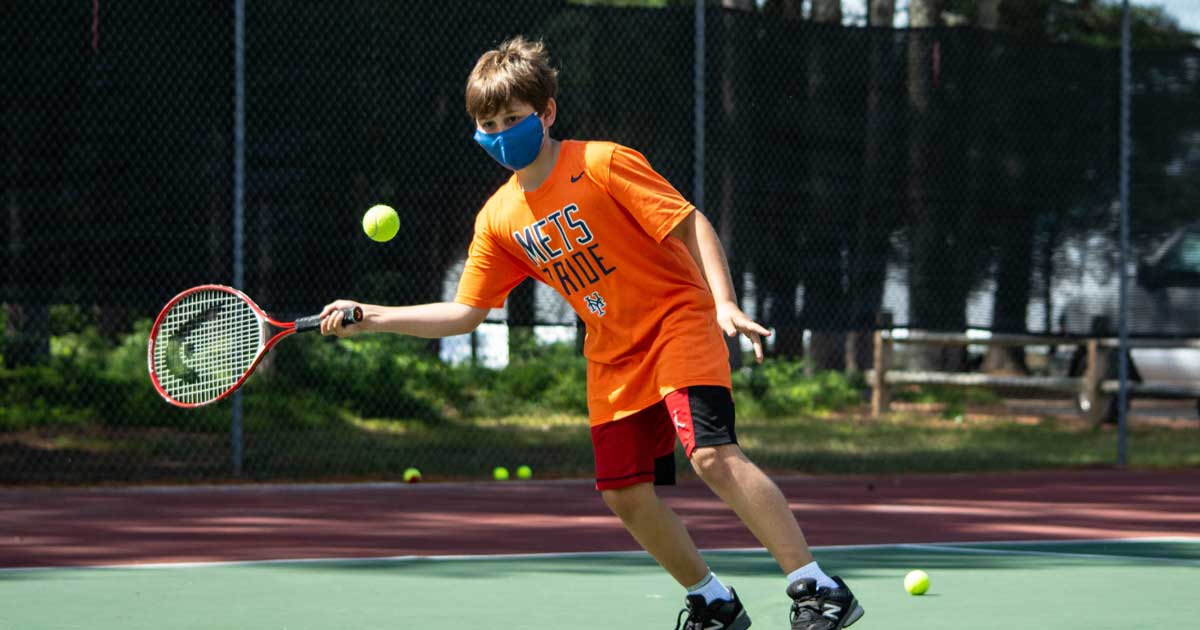Many camp directors and owners are curious about residential camps that chose to remain open during the 2020 camp season, particularly those that did so without any positive COVID-19 tests. Richard “Woody” Woodstein, the director and owner of Camp Robin Hood in Freedom, New Hampshire, is eager to provide this information to his peers. He hopes his story of running a summer camp that stayed open in 2020, and his addition of a new fall program, can support other camps as they navigate the months leading up to summer 2021.
When Woodstein says that he’s been at camp for most of his life, he isn’t kidding. He started as a camper when he was eight, worked as a counselor through college, sent his two sons and his daughter to camp, and eventually bought Robin Hood with a fellow camper who he met in the 70’s. It was the realization of a lifelong dream, but his vision for owning camp never included facing a global pandemic.
Like so many owners and directors he was faced with an unprecedented decision about whether to keep camp open or cancel it this summer. After a great deal of research, and with the support of state officials and the camp’s doctor, he and his team decided to keep camp open. They followed testing and distancing protocols, enhanced cleaning procedures, and were able to successfully run one five-week session COVID-free. It was this success that made him confident he could plan a brand new semester at camp.
A Successful 2020 Camp Season – Without COVID
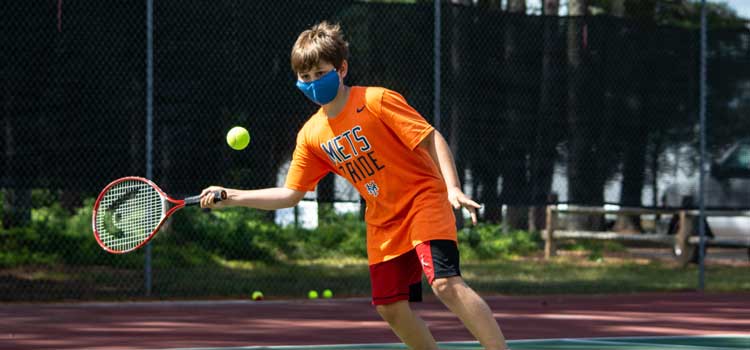
Dr. Arash Babaoff has been the camp doctor at Robin Hood for 14 years, and Woodstein says he was an invaluable asset in keeping camp safe. Woodstein announced in early June that camp would be open, and subsequently spoke with a large majority of the 308 registered campers and their families up to three times before camp started via Zoom calls. Following those calls, Robin Hood’s first safety measures were:
- Each camper was tested seven days before they arrived, and again at the gate before they entered the property.
- Everyone was tested at least twice during the first five days after their arrival.
- Everyone at camp wore masks for the first six days of camp, at which point they were all tested again.
Woodstein says that going down to the dining hall tent six days into camp, and telling everyone that they were all negative, was an amazing moment. Campers and staff could then safely remove their masks. Woodstein says they listened to the science and followed the protocols and were able to create a safe bubble.
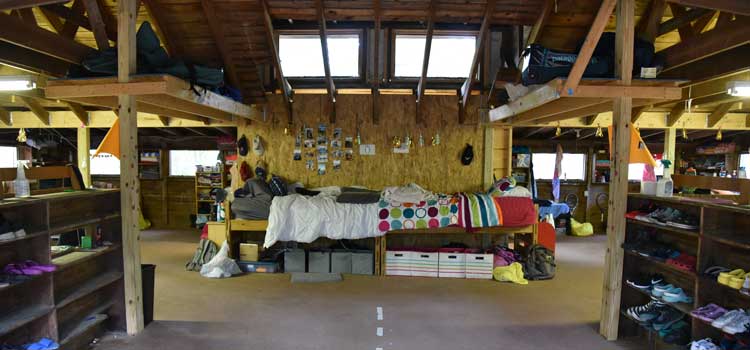
Establishing the bubble was a major success, keeping it intact came next. Some of the steps to make this happen were:
- No one left camp all summer except for medical staff and two drivers.
- Anyone who arrived to deliver food or other supplies was required to wear a mask.
- All large indoor spaces were replaced with tents, to allow for increased air circulation.
- Portable bathrooms were brought in to increase the number of toilets.
- In existing bathrooms, sinks and showers were labeled to serve cohorts of five to seven campers each.
- Older campers took on maintenance tasks typically done by outside workers.
- In bunks, everyone slept six feet apart with beds situated head to toe.
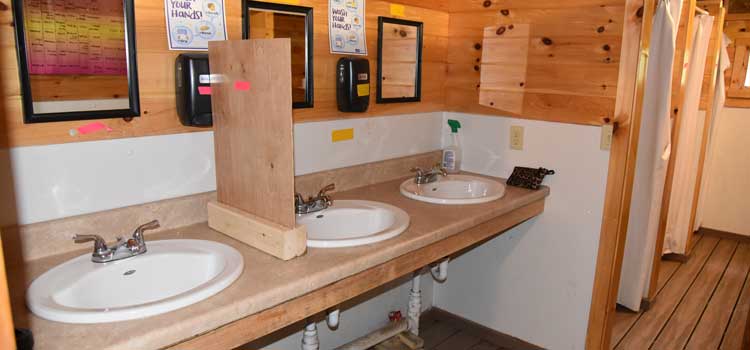
In the dining hall tent, there were significant changes as well. Kids washed their hands when they woke up, again before entering the large tent, and then sprayed with hand sanitizer one final time before sitting down. Additionally:
- Robin Hood did away with their salad bar and instead plated all meals individually.
- The dishwasher wasn’t used, and instead they invested in biodegradable dishes and utensils for each meal.
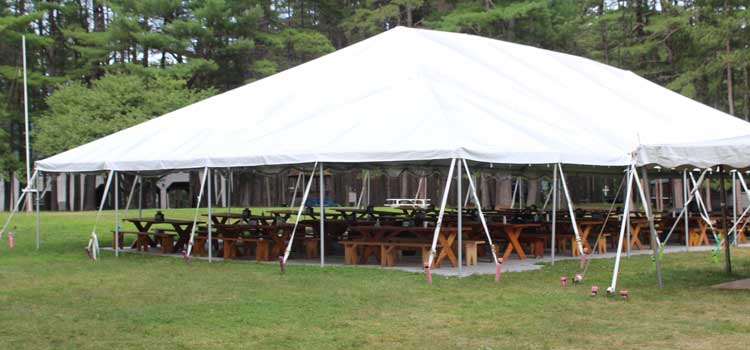
Woodstein says that camp staff took temperatures of every person on-site each day, and that the entire time summer camp stayed open in 2020 there was only one camper who ran a temperature. That lasted just two days and was not COVID-related. There were also no cases of lice or strep throat. Compare these results with 2019, when there were 87 overnight stays in the infirmary, and Woodstein says that next summer many of these sanitizing measures will be in effect, no matter how the pandemic unfolds over the coming months.
Woodstein says that going down to the dining hall tent six days into camp, and telling everyone that they were all negative, was an amazing moment. Campers and staff could then safely remove their masks. Woodstein says they listened to the science and followed the protocols and were able to create a safe bubble.
Camp Robin Hood’s Pivot: Extending Camp into the Fall Season
While official decisions from school districts weren’t made until later in the summer, Woodstein says he had started thinking about extending camp into the school year on day one. He sat at home and watched three of his five kids work from the kitchen table, and thought about how badly they needed to interact with their peers. He also knew that most parents weren’t equipped to be teachers and administrators.
As he listened to the joy of campers this summer who so badly needed opportunities to connect with their peers, he also witnessed firsthand the isolation of remote learning on his own children. With these factors on his mind, and the belief that they could implement the same safety measures that helped them run a summer camp without COVID-19, Woodstein opened registration for a new program: Semester at Camp. He saw that as summer camp stayed open in 2020, kids and families were willing to follow the rules, which gave him additional confidence to open registration in early August.
How Semester at Camp will Work
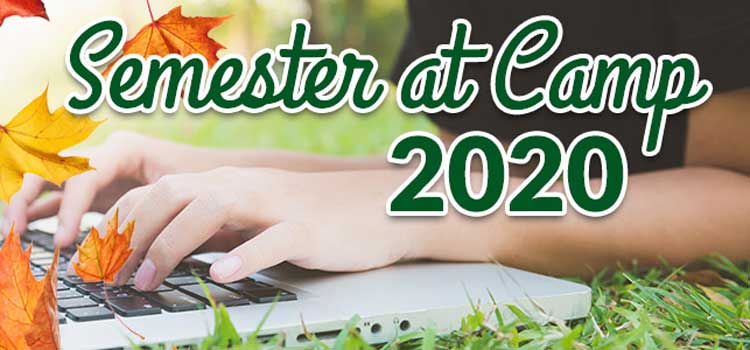
Semester at Camp is open to both campers and non-campers in grades six through eleven. The five-week session will require that each attendee bring their own computer, so they have access to their specific school’s remote learning program. Extended WiFi will allow for enough bandwidth for all online classes.
Woodstein has hired most of his counselors from the summer to run activities, as well as tutors who specialize in a variety of subjects. Bunks will be staffed at a 10:1 ratio and quiet workspaces will be cordoned off.
The schedule starts with campers doing school work from 9am – 3pm, at which point school turns into camp. Counselors will run arts and sports activities, allowing campers to fulfill these curriculum requirements. After dinner, kids can study if needed and then there will be an evening activity and a nightly bonfire. Woodstein says that each weekend will include a special event, such as Color War, Beach Day, and Halloween.
Tuition for Semester at Camp is $9,000 per camper, which covers all the typical camp services, plus school supplies and COVID-19 testing. Staff will use the same health and safety protocols that worked over the summer, just with more refinement based on their experience.
Woodstein says he sees this program as a lateral move. He feels that if kids are going to sit at home and watch a screen, why shouldn’t they come to a place as beautiful as Robin Hood? They can be with their friends, gain independence, and watch the leaves turn colors. He also has faith that what makes Camp Robin Hood special is what made summer camp without COVID-19 possible, and would do the same for fall. He says that the people who love camp have good hearts, have a lot of passion, and deeply care about each other. Part of that is following directions and understanding that doing so impacts not just their own health, but that of the entire camp community.
Woodstein says that his primary motivation in offering a fall program at summer camp is the knowledge that kids need it. He says they need to laugh with each other, to talk with each other, and even to argue with each other.
Summer camp stayed open in 2020: Why extend into the fall?
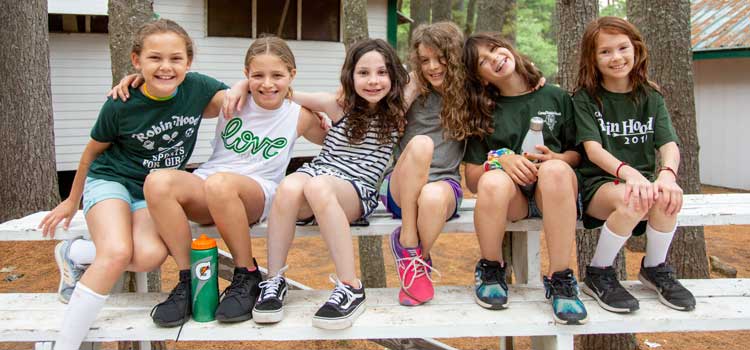
Woodstein says that his primary motivation in offering a fall program at summer camp is the knowledge that kids need it. He says they need to laugh with each other, to talk with each other, and even to argue with each other.
It’s also not lost on him how much parents need this support as well. He says that it’s not that they don’t love their kids, just that they need a break. It’s worth the effort on his part if he can lessen the stress that some parents are dealing with.
For Woodstein and his team, nothing about running camp this summer has been easy, but he also says that it’s been the most challenging and incredible five weeks at camp he’s ever had. That says a lot, considering he’s been at Robin Hood since 1973. As he walks around camp, all he hears from campers is happiness and gratitude. He knows his campers are going to remember this summer for the rest of their lives, and he knows that’s true for him as well.
